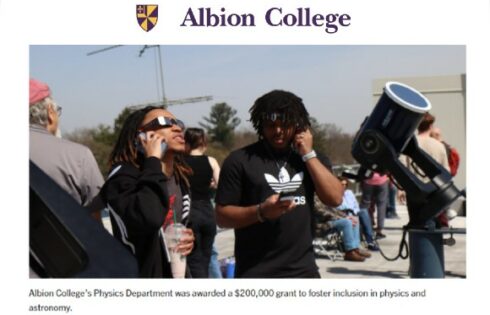
Sebastian Gorka showed the way
Sebastian Gorka is a controversial intelligence analyst who served briefly in the Trump administration. He subsequently attended a summit at the White House on the subject of social media. At the summit, Voice of America’s White House correspondent Steve Herman hit Gorka with an ambush question. The live exchange did not go well for Herman.
Herman: Mr. Gorka, if you believe in not blocking anybody, that everybody should have a fair chance–
Gorka: I don’t.
Herman: You block me–
Gorka: I don’t.
Herman: Block hundreds and hundreds of–
Gorka: I block whoever I want to. I block 16,000 people.
Herman: Why?
Gorka: Because they’re asshats, that’s why.
Herman: Am I an asshat?
Gorka: If I blocked you, yeah.
Without weighing in on the posterior headgear question, boy was Gorka on to something.
In a free truly free society, people have a right to speak words calling for repression, banishment, and even formal censorship, so long as they don’t incite people to violence and mass lawbreaking. But – and this next part is key – we don’t have to listen to them. The freedom of association guaranteed to us in the First Amendment also guarantees us the right to not associate with people.
The freedom of disassociation is rarely mentioned and even more rarely defended. It is a vital tool for civic society as we grapple with the new social media-fueled “cancel culture.”
Twitter mobs and related social media-organized efforts all have the same broad gauge target. Rather than debate, activists aim to shame, suppress, ostracize, deplatform, disscholarship, expel, unemploy, and otherwise “cancel” people whose views they disagree with, on an incredibly broad range of issues.
If you make a joke that goes over poorly, you might get cancelled. If you use the wrong pronoun when referring to a person who has had sex reassignment surgery, cancelled. If you insist that “all lives matter,” you’d better check your privilege. In fact, if you even so much as object to the mobbish attempts to cancel people, the Twitter mob may turn on you next.
There is no reasoning with cancelers, and many will admit as much. They insist you are an irredeemable “garbage person” or an “actual Nazi.” Effectively, that means you are an unperson, and thus not vested with the same rights and privileges enjoyed by those more woke than you, or at a more victimized position in the intersectional org chart.
How does a free people deal with unreasonable digital mobs? Fortunately, technology may be our friend as well as our foe here. We can block, for one, and screenshots are forever.
People already seem to have embraced social media blocking on a large scale. The app Blolook tracks blocks on Twitter. It has 3.4 million registered users, which ought to be able to give us some idea of what’s going on with that social network. It tells us that there are at least 2 billion blocks associated with those users, or 588 per user.
The real trick now is to give that blocking social force. I don’t have all the right bright ideas to do that, but these strategies should help.
1. Take screenshots of social media mobbing and put together a database of the cancelers
If someone is consistently social media mobbing targets that he, she, or it does not like, that person’s posts and tweets will make quite a compendium of spite for all the world to see, until the end of time.
2. Share these databases with the corporate world
Cancelers often try to convince the people who operate companies’ social media accounts that they should fear a “backlash.” But what if it cut the other way? It ought to.
Is it really such a good idea to put people who spend their time trying to cancel people behind the retail counter, in charge of a marketing campaign, or in an HR department? For that matter, is it a good idea to let them loose on a classroom? Generally, no.
3. Support institutions that enact anti-mob policies
Companies that focus on actual customer service, innovation, and profits, and eschew online drama, ought to be praised by shareholders and customers. If that takes companies blocking some cancelers, and watching them complain about it (until we block them) so be it. Schools that act along similar lines should also be praised.
4. Make a much bigger deal out of blocking
Right now, most blocking is happening rather quietly, with social media users just saying, “None of that for me, thanks.” It’s understandable, but some initiatives need to make a much bigger deal out of blocking.
The aim should be to show social media mobbers that they are shrinking their own sphere of influence by behaving like lunatics. And if they are also hurting their own job prospects while they try to get others cancelled, they might actually think twice about it.
Remember: We don’t have to pay attention to the cancelers. And we certainly don’t owe them something just because they are offended.
We have a Constitutional right to block them and move on. The perfect time to exercise that right is now.
MORE: Harvard club cancels event set to feature expert … on cancel culture
IMAGE: Shutterstock
Like The College Fix on Facebook / Follow us on Twitter







Please join the conversation about our stories on Facebook, Twitter, Instagram, Reddit, MeWe, Rumble, Gab, Minds and Gettr.